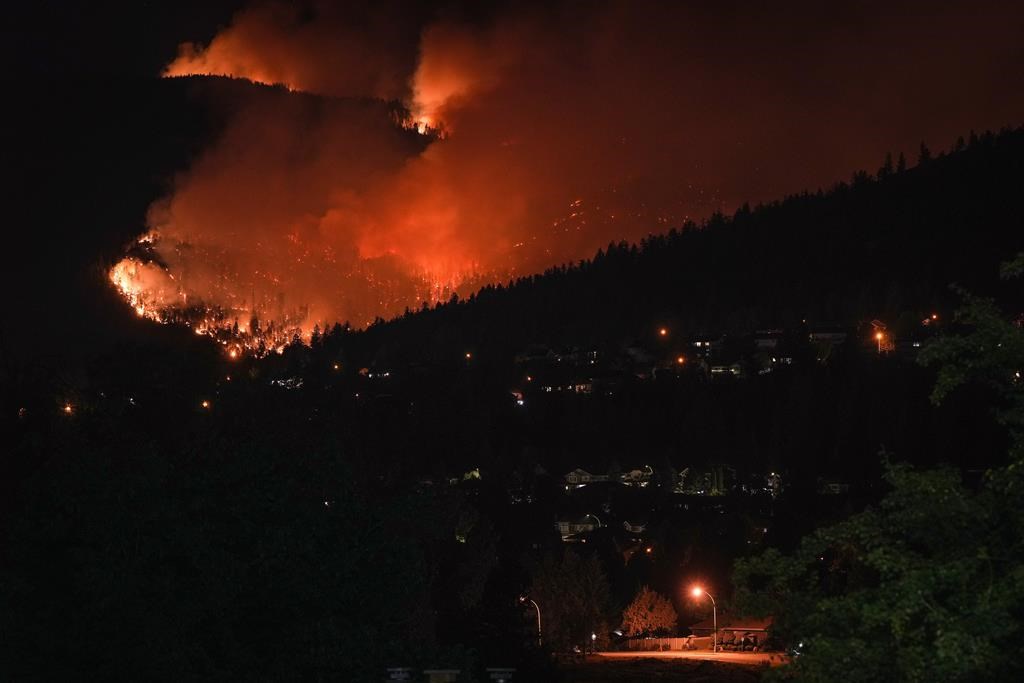“Evacuation orders must be followed. They are not suggestions. They are the law.”

Minister of Emergency Management Bowinn Ma was straightforward earlier this week when discussing raging wildfires in B.C.’s Southern Interior.
However, Ma’s statement suggests that those who intentionally ignore evacuation orders and stay home to protect their properties are breaking the law.
But are they?
One lawyer that Global News spoke to said, unequivocally, yes.
“Under the B.C. Emergency Act, either the provincial government or local, municipal governments can declare a state of emergency,” said Vancouver-based defence lawyer Kyla Lee.
“And then once they’ve declared a state of emergency, the Act allows them to have particular powers to either make orders or commandeer property, to compel people to do certain things in order to assist with responding to an emergency.
“There are also provisions of the Emergency Act that make it an offence not to follow through with those orders.”

Lee continued, saying, “So if you contravene an order that’s given under the Emergency Act, you are committing an offence. You are also committing an offence if you violate the Act by obstructing somebody in carrying out any of those orders.”
The Emergency Program Act is available online.
And under Section 27, a person who is found guilty of committing an offence could be liable for imprisonment up to a year, a fine of up to $10,000 or both – possibilities that Lee called “significant.”
Lee says examples of being charged include moving wildfire equipment to battle a fire on your property, or taking up the time of police or firefighters persuading you to leave.
Asked if she’s seen anyone charged under the Act, Lee said she wasn’t aware of any cases, adding that “most people understand that when there’s an emergency, you need to get out of the way and let the people who are dealing with it, deal with it and not interfere with or obstruct that.”

Would it be hard for a lawyer to defend such a case? Again, Lee said yes.
“It would be a difficult case to defend because, usually, there are a lot of witnesses,” said Lee.
“You’re going to have emergency personnel, first responders, firefighters who are all going to be able to say that this person was not complying with the evacuation orders and that made our jobs harder.
“It is also a difficult case to defend just because there’s a high public interest in prosecuting these types of cases if they do end up charged. And, again, that’s to deter other people from committing these same types of acts in the future.
“Because this goes directly to the protection of the public. The Emergency Act isn’t used for everyday things. It’s used in cases where there is a real emergency, where the government needs to take extraordinary action to protect the health and safety of British Columbians or of the province.”

- Fall COVID-19 vaccine guidelines are out. Here’s what NACI recommends
- Thousands of Canada’s rail workers have a strike mandate. What happens now?
- Some 2019 candidates ‘appeared willing’ to engage with foreign interference: Hogue inquiry
- Bird flu: Experts urge more surveillance in Canada — before it’s too late




Comments